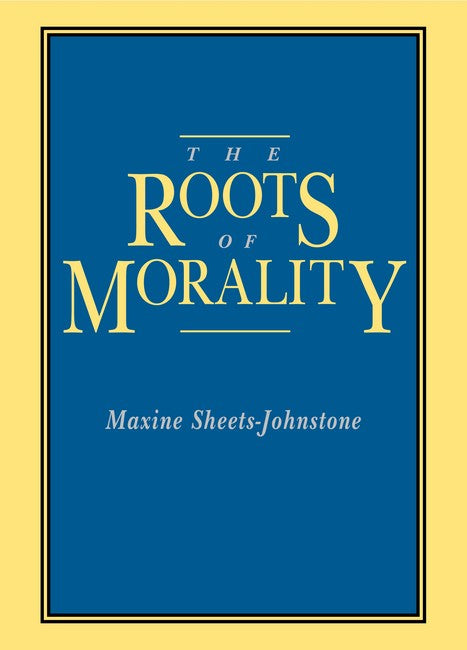Contents
Prologue: Human Nature and Human Morality: The Challenge of Grounding “the Moral Sense”
1. Introduction
2. The Foundations Laid by Hume in His Moral Philosophy
3. On the Origin of Sympathy and Selfishness: An Initial Determination
4. Unevenly Valorized Binary Oppositions: A Question of Life and Death
5. Hume’s Affective Polarity Revisited
6. The Culture/Nature Opposition
From the Perspective of Mythology and Religion
From the Perspective of Patriarchal Symbolism
From the Perspective of Practices in Present-day Western Science
From the Perspective of the Cultural Practice of War
7. Conclusion
Notes
Part I
1 Size, Power, and Death: Constituents in the Making of Human Morality
I. Introduction
II. Size and Power
III. Cultural Translations of Biological Facts
IV. Cultural Transformations and Evolutionary Ethics
V. Immortality Ideologies
VI. Implications
Notes
2 Death and Immortality Ideologies in Western Philosophy
I. Introduction
II. Descartes
On the Purpose of the Meditations as Specified in the Synopsis
Mind as Immaterial Substance
Mind and the Question of Time
III. Heidegger and Immortality Ideologies
IV. Psychological Underpinnings of Immortality Ideologies
V. Derrida’s Immortality Reading of Husserl and Derrida’s Own Immortality Ideology
VI. The Double: A Further Sign of Derrida’s Immortality Ideology
VII. The Last Word and the Ultimate Mortal Question
Notes
3 Real Male-Male Competition
I. Introduction
II. On Natural and Sexual Selection
III. Darwin’s Seminal Insights into Male-Male Competition and Their Total Neglect in Current Research
IV. Exemplifications
V. Evolutionary Considerations
VI. A Methodological Imperative and A Closing Apologue
VII. An Afterword
Notes
4 On the Pan-cultural Origins of Evil
I. Introduction
II. The Banality of Evil
III. Affective Elaborations of the Banality of Evil
IV. Toward Pan-cultural Understandings of the Banality of Evil
V. Beginning Evolutionary Considerations
VI. Clarifications Along Motivational Lines
VII. Killing, Death, Fear: Elementary Facts of Human Life
VIII. Warriors and the Heroic Honing of Males
IX. A Finer Analysis of Motivation
X. Broader Socio-Political Understandings of the Heroic Honing of Males: A Return to Evolutionary Considerations
XI. Classic Studies: An Afterword on History and Science
Notes
Part II
5 Empathy
I. Introduction
II. Early Clues and Husserl’s Archival Texts
III. Affect Attunement and the Qualitative Nature of Movement
IV. Emotions and Movement
V. Spontaneity
VI. The Kinetic Foundations of “Knowing Other Minds”
VII. Responsivity
VIII. Empathy
IX. A Postscript on Origins, History, and Methodology
Notes
6 Child’s Play: A Multidisciplinary Perspective
I. Introduction
II. Rough and Tumble Play
III. Locomotor-Rotational Play
IV. Play and Laughter
V. Morality and Child’s Play
Notes
7 On the Nature of Trust
I. Introduction
II. Learning to Trust: Uncovering Affective and Existential Realities
III. A Critical Examination of Luhmann’s Thesis of a “Readiness to Trust”
IV. Affective Experience, Human Freedom, and Uncertainty: Deepened Understandings of Trust
Notes
8 The Rationality of Caring: Forging a Genuine Evolutionary Ethics
I. Introduction
II. Transfers of Sense: The Ground of Caring
III. Comsigns: The Evolutionary Basis of Intercorporeal Life
IV. The Rationality of Caring: Laying the Groundwork
V. The Living Import of the “Metaphysically Significant”: The Experience of Interconnectedness
VI. The Living Import of the Metaphysically Significant: Interconnectedness, the Principle of Not Harming, and “Difference Removed”
VII. A Closer Look at the First Moral Principle and the Challenge of Human Existence
Notes
Epilogue: Re-Naturing the De-Natured Species: An Interdisciplinary Perspective
I. Introduction
II. Endangered Species
III. Ontogeny and Natural Signs
IV. Aggressive Complexities in the Socialization of Fear
V. Acquisitive Complexities in the Socialization of Fear
VI. On Psychological Ignorance
VII. A Moral Education
VIII. Concluding Thought
Notes
References
Index

